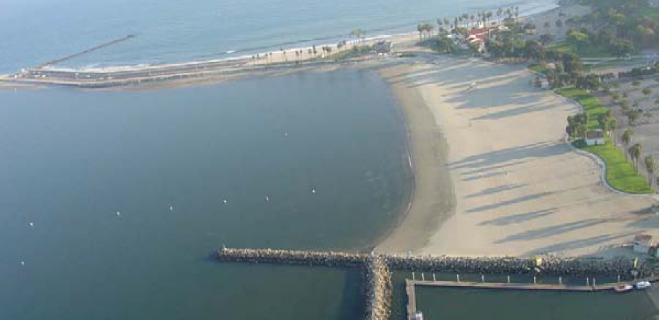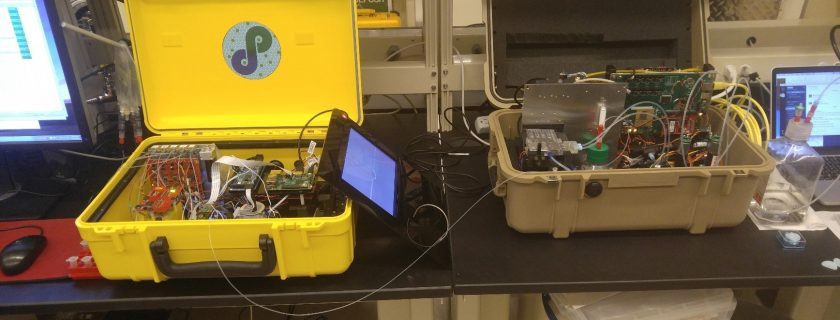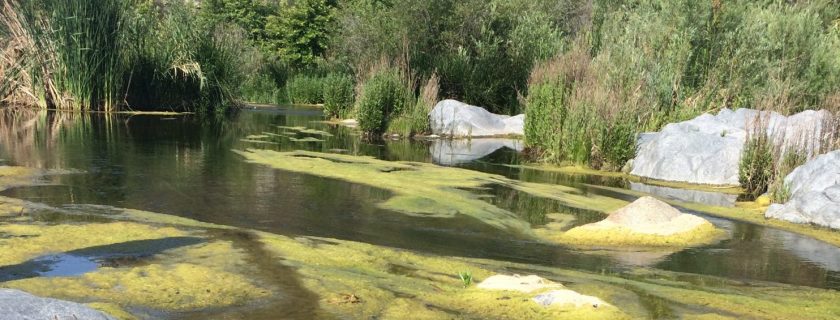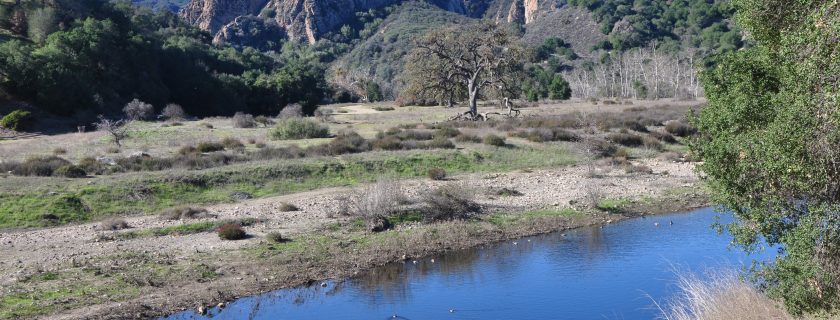An expert advisory panel convened by SCCWRP in 2015 to evaluate the state’s accrediting body for environmental laboratories has completed a one-year follow-up review of the program, concluding that it … More
Articles by: genus
Analysis underway for Inner Cabrillo Beach health risk modeling study
A SCCWRP-facilitated advisory committee is reviewing water-quality sampling data collected from Inner Cabrillo Beach to determine whether high fecal indicator levels at the Los Angeles County beach are indicative of … More
Study design being finalized to examine antibiotic-resistant bacteria, genes in effluent
SCCWRP and its POTW member agencies are finalizing the design of a study that will examine whether viable antibiotic-resistant bacteria and the genetic material that codes for antibiotic resistance are … More
Suitcase-sized microbial detection device to begin field-testing in spring
SCCWRP this spring will begin field-testing a suitcase-sized prototype instrument that could revolutionize the speed at which beach ocean water is analyzed for microbial contamination. The droplet digital PCR (polymerase … More
Macroalgal work being used to draft updated nutrient TMDL for Santa Margarita River Estuary
A SCCWRP-led investigation into how to set scientifically defensible macroalgal biomass and nutrient loading targets in the Santa Margarita River Estuary is serving as the basis of a proposed alternative … More
Demonstration maps reveal extrapolation limits of stream condition scores
SCCWRP has generated a series of maps that reveal the geographical extent to which ecological condition scores calculated for stream sampling sites may be extrapolated to unsampled reaches upstream and … More
Sediment samples being analyzed to test CEC monitoring framework
SCCWRP and the Sanitation Districts of Los Angeles County have begun analyzing sediment samples collected from across two regions of California for a pilot study that will test-drive a new, … More
Promising passive sampling device developed to detect fipronil in receiving waters
SCCWRP and its partners have identified a promising, cost-effective passive sampling method for detecting the ubiquitous pesticide fipronil in receiving waters. The passive sampling method for this problematic, high-priority CEC … More
Field sampling kicks off for linking freshwater HABs to marine impacts
SCCWRP and its partners have launched the field sampling for a study that will examine how freshwater toxins influence downstream waterbodies along the California coast. The goal is to understand … More
First phase wraps up for West Coast acidification model development
West Coast researchers working to develop a computer model that predicts how the region’s coastal waters will be affected by ocean acidification and hypoxia have successfully completed the first phase … More



